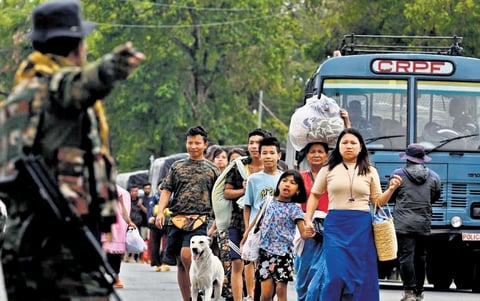Written by Joel Remtluanga (Sem. II)
NORTH EAST INDIA is known for its diverse cultures and pristine landscapes. But the people of this region are facing immense challenges, and need the immediate attention of the Union government.
The region is home to many ethnic groups, such as Mizo, Naga, Bodo, Khasi, Meitei and many other smaller ethnic groups. Unfortunately these identities have led to conflicts among the groups. Recent clashes between the Meitei and the Kuki in Manipur highlight the simmering tensions in the region.
Despite its natural resources, Northeast India remains one of the few regions that are yet to see adequate progress. Promises of development failed to materialise for people who need it the most. High unemployment rates force younger generations to leave their hometown and to look for better opportunities elsewhere.
Education can lead to better futures, but many children in North East are still facing significant obstacles. Schools in remote areas still lack basic facilities and trained teachers. High dropout rates due to financial issues in the family and societal pressure are still happening.
Violation of human rights and extrajudicial killings is a persistent issue in this region. The Armed Forces (Special Powers) Act (AFSPA) gives security forces extensive powers and legal protection. Recent protest in Nagaland over civilians killed by security forces saw this Act in full force.
Despite all these challenges, grassroots organisations and local activists are working to improve life by promoting art, culture, and sports. Young leaders are emerging, who are advocating for social justice and development.
The Way Forward
To truly address the marginalisation of North East India, a comprehensive approach is required. The government needs to change its approach and engage in meaningful conversation with different ethnic groups and implement sustainable development projects. Respecting human rights, and adding a sense of unity and inclusivity are also essential.
North East India is at a critical juncture with much scope for improvement. Sky is the limit if all the talents are nurtured, but first all these marginalised communities must be recognised and helped to build a more inclusive and equitable future.
* * *
